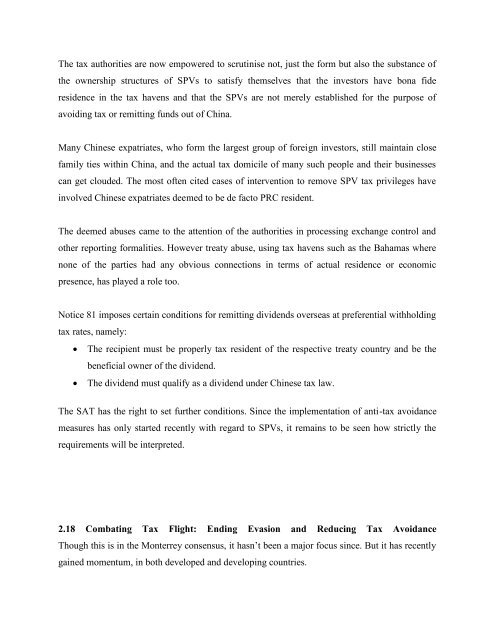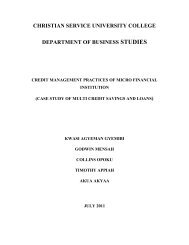TAX EVASION.pdf - Christian Service University College
TAX EVASION.pdf - Christian Service University College
TAX EVASION.pdf - Christian Service University College
Create successful ePaper yourself
Turn your PDF publications into a flip-book with our unique Google optimized e-Paper software.
The tax authorities are now empowered to scrutinise not, just the form but also the substance of<br />
the ownership structures of SPVs to satisfy themselves that the investors have bona fide<br />
residence in the tax havens and that the SPVs are not merely established for the purpose of<br />
avoiding tax or remitting funds out of China.<br />
Many Chinese expatriates, who form the largest group of foreign investors, still maintain close<br />
family ties within China, and the actual tax domicile of many such people and their businesses<br />
can get clouded. The most often cited cases of intervention to remove SPV tax privileges have<br />
involved Chinese expatriates deemed to be de facto PRC resident.<br />
The deemed abuses came to the attention of the authorities in processing exchange control and<br />
other reporting formalities. However treaty abuse, using tax havens such as the Bahamas where<br />
none of the parties had any obvious connections in terms of actual residence or economic<br />
presence, has played a role too.<br />
Notice 81 imposes certain conditions for remitting dividends overseas at preferential withholding<br />
tax rates, namely:<br />
The recipient must be properly tax resident of the respective treaty country and be the<br />
beneficial owner of the dividend.<br />
The dividend must qualify as a dividend under Chinese tax law.<br />
The SAT has the right to set further conditions. Since the implementation of anti-tax avoidance<br />
measures has only started recently with regard to SPVs, it remains to be seen how strictly the<br />
requirements will be interpreted.<br />
2.18 Combating Tax Flight: Ending Evasion and Reducing Tax Avoidance<br />
Though this is in the Monterrey consensus, it hasn’t been a major focus since. But it has recently<br />
gained momentum, in both developed and developing countries.



